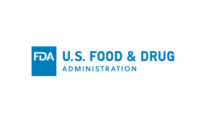The Reagan-Udall Foundation has published its independent review of the U.S. Food and Drug Administration’s (FDA’s) Human Foods Program, highlighting key findings and providing recommendations regarding organizational culture, structure, resources, and authorities. The evaluation will be used to “inform a new vision for the FDA Human Foods Program,” according to FDA Commissioner Robert M. Califf, M.D., M.A.C.C.
Dr. Califf suggested that FDA’s “new vision” might include restructuring the existing Human Foods Program and its leadership, identifying new sources of funding, advancing the agency’s critical inspectional activities, and upgrading digital technology systems.
In July 2022, Dr. Califf commissioned the Reagan-Udall Foundation to convene an independent expert panel to assess the agency’s Human Foods Program, which includes the Office of Food Policy and Response (OFPR), the Center for Food Safety and Applied Nutrition (CFSAN), and relevant parts of the Office of Regulatory Affairs (ORA). Excluded from the review was the Center for Veterinary Medicine (CVM), as well as the cosmetics and dietary supplements components of CFSAN. The aim of the evaluation was to strengthen FDA’s food regulatory role. The review was commissioned following pressing food safety and security challenges that arose during 2022, such as the infant formula safety and supply crises.
Culture
The Reagan-Udall Foundation expert panel considered input from internal and external stakeholders, including FDA staff, to review the culture of the Human Foods Program. The report defines “organizational culture” as “the shared values and beliefs that govern how individuals behave in an organization,” which directly affects the organization’s efficacy and decision-making.
The expert panel found that, despite the dedication of staff members, the culture of the Human Foods Program inhibits the agency’s ability to effectively protect public health. The report points to the Human Foods Program’s lack of clear vision and mission, disparate structure and consensus governance model, and the lack of a strong leader and ultimate authority. In particular, the lack of a clear, overarching leader for the Human Foods Program has contributed to a culture of indecisiveness. Additionally, the absence of a unifying mission and definition for the Human Foods Program has led to a fragmented staff, overlapping roles, competing priorities, and a lack of communication that result in what is perceived as “constant turmoil,” according to the report.
The report also underlines the fact that the Human Foods Program’s reliance on consensus has significant drawbacks for making decisions about taking regulatory action, and that the program must shift its culture of risk aversion to one that embraces well-informed risk-taking. Furthermore, a culture of cooperation and accountability in the Human Foods Program’s field operations needs to be reestablished.
The panel outlined several recommendations to move the Human Foods Program toward a more enabling and effective culture:
- Identify, communicate, embrace, and promote a clear and compelling vision, mission, and value statement for the Human Foods Program
- Establish an organizational structure with a clear leader, and ensure that there is a clear articulation of roles and responsibilities within the Human Foods Program and a culture that is well-equipped to survive leadership transitions
- Develop and nurture a culture where regulatory decision-making is rooted in scientific evidence and FDA’s legal framework
- Commit to transparency, timeliness, and predictability in decision-making, with a preference toward action
- Commit to an ongoing process of culture change from the highest levels of FDA leadership
- Develop and implement a change management strategy that not only manages change, but also effectively improves and monitors the environment for cultural change
- Build expectations and incentives into the system to embrace a positive, collaborative culture that expects, values, and rewards teamwork
- Create a culture of feedback and authenticity where continuous, honest, and constructive feedback is given and received
- Nurture current staff and recruit, hire, and promote top-quality staff, including strong managers.
Structure
Regarding organizational structure of FDA’s Human Foods Program, the expert panel found that there is no clear leader or decision-maker, outside of the Commissioner. Although the missions of CFSAN and OFPR have differences on paper, staff are often left wondering which program is responsible for decision-making. A Human Foods Program Governance Board was established in 2014 to facilitate coordinated decision-making, but it has not effectively addressed structural challenges.
Particularly problematic is the fact that ORA’s implementation of policies and field work is largely independent of CFSAN, the organization that is responsible for developing and writing the policies that are then discharged with a majority of ORA’s funding. Additionally, CFSAN’s dual focus on food safety and nutrition—in addition to its dietary supplements and cosmetics charges—results in the center’s nutrition-related responsibilities receiving lesser priority.
The report includes several, detailed options for a restructured Human Foods Program, in addition to recommended actions for FDA to take. The expert panel’s recommendations for improving the structure of the Human Foods Program are to:
- Increase the visibility and prominence of the program
- Define clear lines of authority for the program
- Elevate the importance of nutrition within the program
- Integrate the foods portfolio of ORA directly into the other elements of the Human Food Program
- Integrate the food-relevant work of CVM into the Human Foods Program
- Establish a new Foods Advisory Committee, at the Commissioner level, to strengthen external input on program activities
- Implement structural changes alongside cultural transformation efforts.
Resources
The expert panel agreed that the Human Foods Program is “significantly under-resourced” and in urgent need of additional personnel, financial, and information technology (IT) resources to effectively execute its duties. Funding and staffing for the Human Foods Program has grown insufficiently and at a slower pace than almost all other components of FDA. The report exemplifies CFSAN, the budget for which has remained relatively flat for more than a decade; in comparison, funding for the Human Drugs Program increased 121 percent over the same period.
Additionally, the Human Foods Program does not fully utilize its industry fee authorities provided by the Food Safety Modernization Act (FSMA) to augment its budget. FDA user fee programs account for 46 percent of the agency’s overall budget, but only 1 percent of the budget for the Human Foods Program. In comparison, FDA’s tobacco and human drugs activities are 100 percent and 66 percent funded by their industry user fee programs, respectively.
The Human Foods Program’s insufficient budget has led to difficulties with staffing, which has also remained relatively flat since 1978, despite growing responsibilities for CFSAN under FSMA. Finally, the lack of an overarching plan and adequate resources has led to the inability for FDA to optimize IT systems.
Inadequate financial, personnel, and IT resources have impeded the Human Foods Program’s implementation of FSMA, as well as nutrition labeling, food additive, and Generally Recognized as Safe (GRAS) designation reviews. The expert panel’s recommended actions for FDA in working with limited resources or augmenting its available resources include:
- Secure agile hiring authorities and salary flexibilities of the 21st Century Cures Act and develop hiring solutions
- Strengthen cooperative relationships with state and local authorities to expand utilization of state capabilities
- Expand staff engagement in outside conferences to keep pace with scientific and industry advancements
- Develop and implement a strategic plan for a competitive external research structure to develop a workforce pipeline of future FDA Human Foods Program staff and improve scientific engagement
- Develop and adequately resource an internal Human Foods Program research strategy
- Formulate an appropriations strategy that begins with a well-defined agenda and a clear case for why increased program funding is necessary
- More fully implement the authority to collect industry user fees provided under FSMA
- Engage stakeholders to explore additional mechanisms for industry support of the Human Foods Program
- Allocate more of FDA’s budget to the Human Foods Program
- Invest and adequately resource its Enterprise Modernization Initiative.
Authorities
In light of FDA’s increasing responsibility for food safety standard-setting and oversight, the expert panel identified areas in which it is urgent for the agency to be bolder in exercising its authorities, specifically: collecting user fees, GRAS designation, data-sharing, mandatory recall, and nutrition labeling. The report also includes a list of ideas for strengthening existing authorities:
- Expand the criteria for suspension of registration for food facilities
- Strengthen the authority to destroy product after an administrative review or allow detention of product for a longer period to allow more time to pursue other remedies
- Invoke Civil Money Penalties for various violations
- Establish administrative authorities that allow FDA to use a progressive enforcement strategy that does not require a Serious Adverse Health Consequences or Death to Humans or Animals determination
- Ensure adequate time to review a new infant formula before the marketing of such new infant formula
- Strengthen authority addressing medical foods
- Update application of the Delaney Clause as it relates to food additives to incorporate the application of modern toxicology approaches
- Clarify authority on how to regulate pharmacologically active extracts (e.g., Cannabis-derived products) used in the food supply
- Seek prior approval (premarket) label approval authority
- Clarify FDA’s jurisdiction to access, investigate, and collect samples on property where food-producing animals are raised or graze that are near produce farms or water sources
- Pursue the ability to monitor industry and consumer behavior to improve food safety efforts.
Finally, the expert panel proposed a list of potential new FDA authorities that would strengthen the Human Foods Program, some of which are deemed urgent:
- Urgent—Secure agile hiring authorities and salary flexibilities of the 21st Century Cures Act
- Urgent—Seek to amend section 708 (21 U.S.C. 379) of the Federal Food, Drug, and Cosmetic Act to allow for disclosure of non-public information to state, local, tribal, and territorial (SLTT) jurisdictions
- Urgent—Seek authority to request records from food manufacturers in advance or instead of an inspection, and to be notified of possible supply chain disruptions or important product shortages
- Urgent—Seek a substantial amount of “no-year” funding for the Human Foods Program, especially to address longer term challenges (such as IT) and engagement with SLTT partners for inspectional activity
- Engage stakeholders to explore industry financial support, such as user or registration fees, to increase financial resources for the Human Foods Program
- Seek authority to align the consequences for violations of the Preventive Controls rule requirements with violations of FDA’s food safety Hazard Analysis Critical Control Point (HACCP) requirements.
A New Vision
Based on the independent external review by Reagan-Udall and a separate internal review of the agency’s infant formula supply chain response, FDA will formulate its “new vision” for the Human Foods Program and provide a public update at the end of January 2023. The agency will also release additional public updates by the end of February 2023 that include plans for FDA’s leadership structure and any changes to key internal processes and procedures. Final decisions regarding the future of the Human Foods Program will be informed by input from a group of agency leaders convened by Dr. Califf.





